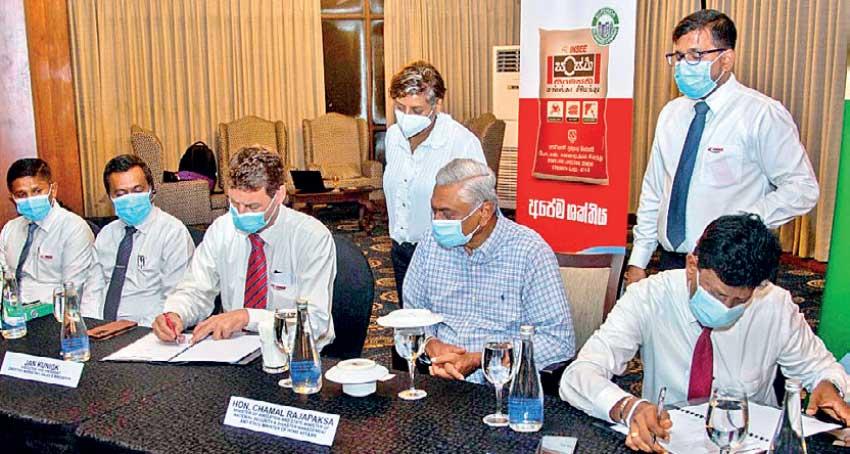Reply To:
Name - Reply Comment

Signing of the MoU
INSEE Cement entered into a Memorandum of Understanding (MoU) with the State Ministry of Home Affairs recently to enhance knowledge of modern engineering techniques and best practices of 25 district engineers belonging to the Engineering Division of the State Ministry over a period of one year.
The MoU was signed between INSEE and the State Ministry in the presence of Minister Chamal Rajapaksa, Minister of Irrigation and State Minister of National Security & Disaster Management, and State Minister of Home Affairs.
The agreement was formalized by the Secretary of the State Ministry of Home Affairs N. H. M. Chithranandha and Executive Vice President – Sales, Marketing & Innovation at INSEE Cement Jan Kunigk.
“Sharing, exchanging and improving access to industry knowledge and accumulated expertise plays a crucial role in INSEE Cement’s mandate to continuously raise the benchmark of the Sri Lankan construction industry,” Jan Kunigk said at the event.
“With this approach a collaborative industry stakeholder community becomes more effective and innovative. We look forward to the successful implementation of this program, and further elevating the local industry standards and competencies and capabilities.”
“Collaborating with INSEE Cement enables our engineers to gain insight to emerging global engineering techniques and best practices,” Minister Chamal Rajapakse said.
“We are encouraged by the enthusiasm shown by INSEE Cement to promote innovation and enhance industry standards through knowledge and resource sharing programmes, and trust that this will set a precedent for more public-private industry collaborations in Sri Lanka.”
Under this agreement, full day training sessions are scheduled to be carried out in one location twice a month, with modules tailored to focus on procurement and contract administration, foundations in weak soils (pilling work), water and waste water management systems in high-rises buildings, HVAC (Heating, Ventilation and Airconditioning) systems, fire protection and detection systems, basics of HV (High Voltage) and LV (Low Voltage) distribution, solid waste management, and the construction and maintenance of
rural roads.